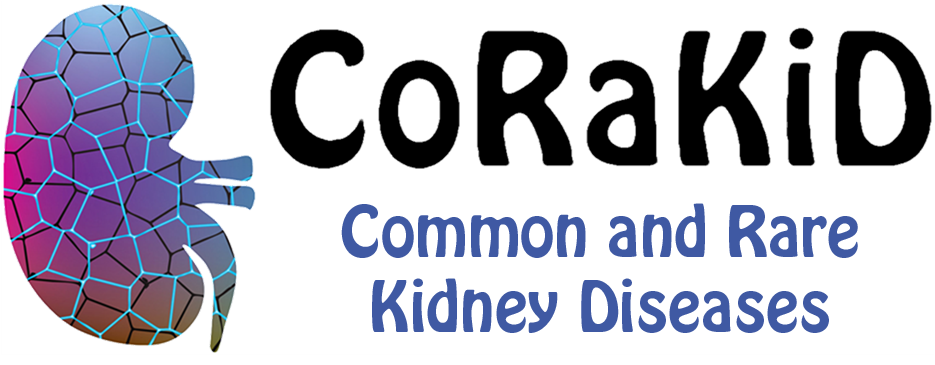Group 1 : Genetics of inherited and acquired rare renal diseases
Group leaders : B Lelongt (DR), H Debiec (DR), R Piedagnel (CR), L Mesnard (PU-PH), E Plaisier (PU-PH), P Ronco (PU-PH), G Perry (MCU), Y Luque (MCU-PH)
Over the past two decades, we identified novel rare renal diseases as well as new mechanisms of disease. Illustrative examples of our discoveries are: 1) the anti-NEP-induced membranous nephropathy which laid the ground for the identification of other antigens responsible for the adult form of the disease, and 2) the HANAC syndrome. We demonstrated that the underlying mechanisms are not confined to the effect of some rare gene mutations on the renal function, but that they can apply to systemic or other organ disorders as well. We plan to pursue our studies by an in-depth investigation of membranous nephropathy and allograft rejection (as models of distorted immunity), collagen IV-related disorders and polycystic kidney disease (as models of basement membrane and cilium diseases) from the gene variants involved to the pathophysiology and the bedside. Our ultimate objectives are to identify new biomarkers of disease and novel (use of) drugs which could be rapidly translated in patient’s care.
ALLOGENOMICS : une méthode innovante pour identifier les mismatchs entre donneur et receveur (L Mesnard)
We have recently developed a computational method called "allogenomics", which compares donor and recipient genomes after renal transplantation (Mesnard et al, Plos Comp Biol, 2016). This method uses genotype information obtained from candidate DNA donor and recipient samples to calculate a personalized computational score predictive of chronic graft loss for each transplant pair (AMS, Allogenomics Mismatch Score)
